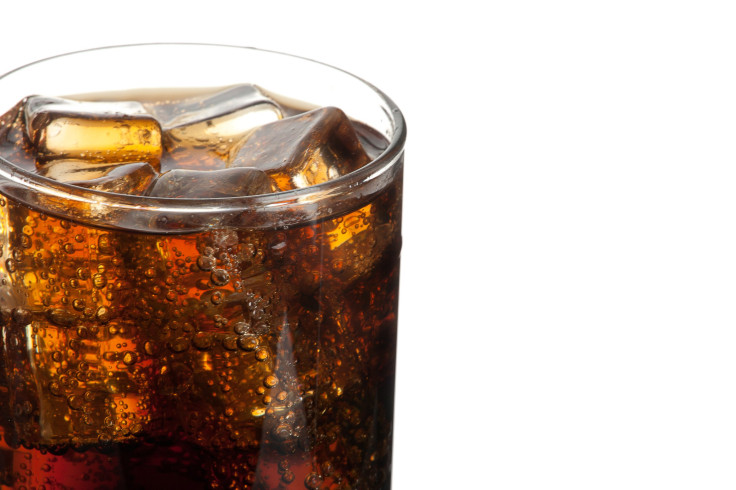Diet Soda Drinkers Lose Weight In New Short-Term Study, But Are Diet Soft Drinks Really Better?

Diet soda and its artificial sweeteners have been vilified for their connections to bad health and parading around its misleading name as a “diet” drink. However, a new study challenges the previous understanding that diet soda is bad for you. Researchers published their unexpected findings in the journal Obesity, which showed an additional 4-lb. weight loss for those who drank diet soda than those who drank water.
Dieters beware though: The study’s results may not be what you think they mean. The 303 participants were split into two different groups; one group had to stop drinking the diet soda, but the other group that kept drinking over a 12-week period lost an additional four more pounds. Researchers from the University of Colorado Anschutz Health and Wellness Center in Aurora, Colo., along with Temple University's Center for Obesity Research and Education in Philadelphia, Pa., looked at whether drinks such as Coke Zero, Diet Dr. Pepper, and Diet Snapple could help people lose more weight than drinking water alone. Although the study resulted in weight loss, experts believe it may just be a matter of willpower.
"It makes sense that it would have been harder for the water group to adhere to the overall diet than the (artificially-sweetened beverage) group," said Dr. Jim Hill, a professor of pediatrics and the director of the weight loss program at the University of Colorado's Anschutz Health and Wellness Center.
When people are put on a diet, the difficulty can be rated to the amount a person has to give up in order to adhere to the diets’ rules. If a person doesn’t have to give up his or her regular diet soda drink, then following all of the diet rules isn’t as much of a challenge, since he or she is able to continue the usual food restrictions, which is what led to the 4-lb. weight loss. The research was funded by the American Beverage Association, an organization that represents non-alcoholic beverage companies and their employees.
Those who “are heavy users of noncaloric sweeteners” were the ones who have successfully lost a significant amount of weight, Hill recalls from his clinical experience. "The results, to us, were not at all surprising," Hill said.
The participants who only drank water during their diets lost 9 lbs., while the ones who drank diet soda lost 13 lbs. in the total 12-week period. Sixty-four percent of those who drank diet soda lost at least five percent of their body weight, which has shown to significantly improve health by lowering the risk of heart disease, high blood pressure, and type 2 diabetes.
According to the National Institutes of Health, diet beverage drinkers who are overweight and obese adults, consume more calories from food than those who drink sugary beverages. A study group of 24,000 adult participants, age 20-and-older, were asked to report all the food and beverages they had consumed in the last 24 hours. They found that 11 percent of diet beverage drinkers were healthy weight people, 19 percent were overweight, and 22 percent were obese adults.
"I feel like I could 1000% tell the benefit of drinking water only. I felt better, I had more energy, I felt healthier, I just generally felt way better," Kristi Norton, a regular diet soda drinker told CNN of her experience as the non-diet drinking group before she knew the study’s results. "And I can feel the difference now when I drink a diet drink, I can feel this 'heaviness'."
Studies that have shown results that indicate, not only that diet soda drinkers are heavier, but also that the artificial sweeteners in diet sodas are detrimental to health. Recent research presented at the American College of Cardiology’s 63rd Scientific Session in Washington, D.C. revealed women who consumed two or more diet drinks daily had a higher risk for heart disease.
"What the prospective studies actually suggest is that if you go out seven years, 10 years, 15 years, 20 years, the cohorts of individuals who are consuming diet sodas have much worse health outcomes," said Susan Swithers, a professor of Behavioral Neuroscience at Purdue University, who believes the short study has its drawbacks.
"Doing these short-term studies that look at weight can't really tell us anything about whether or not these products are contributing to these increased risks," Swithers added. "And it's really hard to look at the (long-term) data and come up with any argument that they're helping."
Source: Hill J, Peters J, Wyatt H, et al. The Effects of Water and Non-Nutritive Sweetened Beverages on Weight Loss During a 12-week Weight Loss Treatment Program. Obesity. 2014.



























